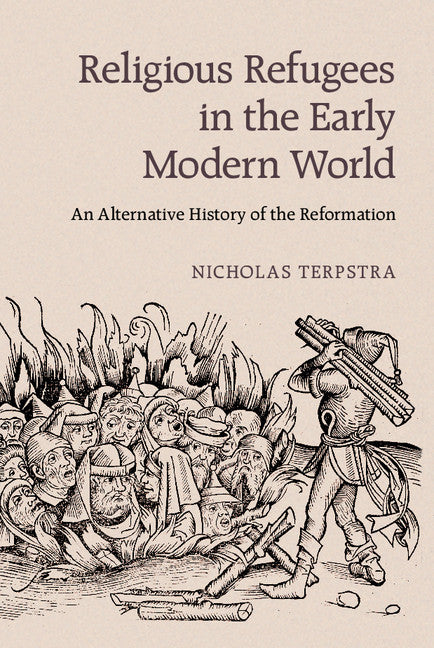Freshly Printed - allow 8 days lead
Couldn't load pickup availability
Religious Refugees in the Early Modern World
An Alternative History of the Reformation
This book examines the emergence of the religious refugee as a mass phenomenon from the fifteenth through the eighteenth centuries.
Nicholas Terpstra (Author)
9781107652415, Cambridge University Press
Paperback / softback, published 23 July 2015
353 pages, 42 b/w illus. 2 maps
23.9 x 16.3 x 4.6 cm, 0.59 kg
'By aiming to do this as an alternative history, Terpstra aims to make connections, and give new places, for a wider audience to start thinking about the Reformation and the early modern period. This book will be read and debated by many who are already familiar with the period and some of the key arguments; for them it will likely spark discussion about where we place the Reformation in relation to wider trends in the early modern period. For others, including undergraduate students, this should offer a thought-provoking introduction to the field, as Terpstra intended, and hopefully some new and interesting debates about both the early modern period and our own times.' Jameson Tucker, Reviews in History
The religious refugee first emerged as a mass phenomenon in the late fifteenth century. Over the following two and a half centuries, millions of Jews, Muslims, and Christians were forced from their homes and into temporary or permanent exile. Their migrations across Europe and around the globe shaped the early modern world and profoundly affected literature, art, and culture. Economic and political factors drove many expulsions, but religion was the factor most commonly used to justify them. This was also the period of religious revival known as the Reformation. This book explores how reformers' ambitions to purify individuals and society fueled movements to purge ideas, objects, and people considered religiously alien or spiritually contagious. It aims to explain religious ideas and movements of the Reformation in nontechnical and comparative language.
Introduction
1. The body of Christ: defined and threatened
2. Purifying the body
3. Dividing the body
4. Mind and body
5. Re-forming the body
6. Re-imagining the body.
Subject Areas: History of religion [HRAX], Early modern history: c 1450/1500 to c 1700 [HBLH], European history [HBJD]


